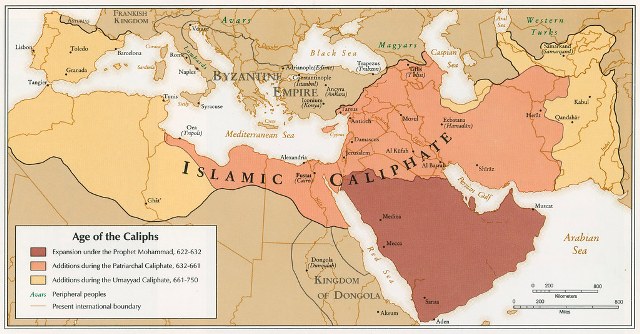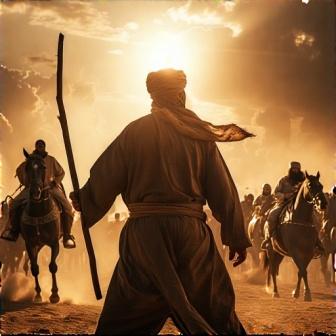The Companions of the Prophet, known as Sahaba (RA), were the devoted followers of Prophet Muhammad (PBUH) who lived alongside him, embraced Islam, and spread its message. Their lives, sacrifices, and faith shaped the foundation of Islam, making them role models for Muslims today. The Quran and Hadith praise their dedication, offering timeless lessons for all. This article highlights 10 key Companions, their contributions, and their significance, grounded in Quranic verses and authentic Hadith. Whether you’re a Muslim seeking inspiration or curious about Islamic history, these stories will deepen your understanding of faith and devotion.
Understanding the Sahaba: Who Were They?
Defining the Companions
The Sahaba (RA) are those who met Prophet Muhammad (PBUH), believed in him, and died as Muslims. They played a crucial role in preserving and spreading Islam. The Quran praises them:
“And the first forerunners among the Muhajirun and the Ansar and those who followed them with good conduct—Allah is pleased with them and they are pleased with Him…”
Surah At-Tawbah, Ayah 100
This verse highlights the high status of the Muhajirun (migrants from Makkah) and Ansar (helpers from Madinah).
Their Importance
The Prophet (PBUH) said, “The best people are those of my generation, then those who come after them” (Sahih Bukhari, Hadith 3650). The Sahaba (RA) were witnesses to revelation, making their lives a guide for Muslims. Below are 10 key figures whose stories inspire.
1. Abu Bakr As-Siddiq (RA)
The First Caliph
Abu Bakr (RA) was the closest friend of the Prophet (PBUH) and the first adult male to accept Islam. Known as As-Siddiq (the Truthful), he supported Islam financially and accompanied the Prophet (PBUH) during the Hijrah. The Quran references his loyalty:
“When the two were in the cave, he said to his companion, ‘Do not grieve; indeed Allah is with us.’”
Surah At-Tawbah, Ayah 40
This verse recounts Abu Bakr’s (RA) steadfastness during the Hijrah.
Example
Abu Bakr (RA) donated all his wealth for the Battle of Tabuk, inspiring Muslims to give generously for Allah’s cause.
2. Umar ibn Al-Khattab (RA)
The Just Leader
Umar (RA), the second Caliph, was known for his strength and justice. Initially an opponent of Islam, he became a fierce defender after embracing it. His leadership expanded the Islamic empire. The Prophet (PBUH) said, “If there were to be a prophet after me, it would have been Umar” (Sunan Tirmidhi, Hadith 3686).
Example
Umar’s (RA) fairness in distributing wealth set a model for just governance, relevant for leaders today.
3. Uthman ibn Affan (RA)
The Generous Caliph
Uthman (RA), the third Caliph, was known for his generosity and modesty. He compiled the Quran into a single book, preserving it for future generations. The Quran praises the generosity of the Sahaba:
“Those who spend their wealth in the way of Allah and do not follow up their spending with reminders of generosity…”
Surah Al-Baqarah, Ayah 262
Example
Uthman (RA) funded the expansion of the Prophet’s Mosque, showing how wealth can serve faith.
4. Ali ibn Abi Talib (RA)
The Brave Scholar
Ali (RA), the fourth Caliph, was the Prophet’s cousin and son-in-law. Known for his knowledge and courage, he was among the first to accept Islam. The Prophet (PBUH) said, “I am the city of knowledge, and Ali is its gate” (Sunan Tirmidhi, Hadith 3723).
Example
Ali’s (RA) bravery in battles like Badr inspires Muslims to stand firm in faith.
5. Aisha bint Abu Bakr (RA)
The Scholarly Mother of Believers
Aisha (RA), the Prophet’s wife, was a leading scholar who narrated over 2,000 Hadith. Her wisdom educated the Ummah. The Quran defends her honor:
“Why, when you heard it, did not the believing men and women think good of one another…”
Surah An-Nur, Ayah 12
Example
Aisha’s (RA) teachings guide Muslim women today in balancing faith and knowledge.
6. Khadijah bint Khuwaylid (RA)
The First Muslim
Khadijah (RA), the Prophet’s first wife, was the first to accept Islam. Her wealth and support strengthened early Islam. The Prophet (PBUH) said, “The best of its women is Khadijah” (Sahih Muslim, Hadith 2430).
Example
Khadijah’s (RA) loyalty inspires Muslims to support their communities selflessly.
7. Bilal ibn Rabah (RA)
The Voice of Faith
Bilal (RA), a former slave, was the first muezzin. His endurance under persecution inspired early Muslims. The Prophet (PBUH) said, “Bilal is one of those who will be in Paradise” (Sahih Bukhari, Hadith 3757).
Example
Bilal’s (RA) resilience encourages Muslims facing discrimination to hold fast to faith.
8. Abu Hurairah (RA)
The Narrator of Hadith
Abu Hurairah (RA) narrated thousands of Hadith, preserving the Prophet’s teachings. The Prophet (PBUH) prayed for his memory (Sahih Bukhari, Hadith 118).
Example
His dedication to learning inspires students to study Islam diligently.
9. Zayd ibn Harithah (RA)
The Adopted Son
Zayd (RA), the Prophet’s adopted son, was a loyal Companion who led battles. The Quran mentions him indirectly:
“And when you said to the one on whom Allah bestowed favor…”
Surah Al-Ahzab, Ayah 37
Example
Zayd’s (RA) loyalty teaches Muslims to prioritize faith over worldly ties.
10. Fatimah bint Muhammad (RA)
The Beloved Daughter
Fatimah (RA), the Prophet’s daughter, was known for her piety and devotion. The Prophet (PBUH) said, “Fatimah is a part of me” (Sahih Bukhari, Hadith 3714).
Example
Her humility inspires Muslim women to live simply and faithfully.
Addressing Common Misconceptions
Misconception 1: Sahaba Were Perfect
While exemplary, the Sahaba (RA) were human and made mistakes, but their sincerity earned Allah’s pleasure (Surah At-Tawbah, Ayah 100).
Misconception 2: Only Men Were Significant
Women like Aisha (RA) and Khadijah (RA) played vital roles, showing Islam’s inclusivity.
Challenge: Relevance Today
Some think the Sahaba’s lives are outdated. Their principles—sacrifice, justice, and faith—remain timeless guides.
Conclusion: The Sahaba’s Enduring Inspiration
Which Companion’s story inspires you most? Reflect on how their qualities, like Abu Bakr’s generosity or Aisha’s knowledge, can guide your life. Study their lives further to strengthen your faith.
The Companions of the Prophet (PBUH)—Abu Bakr, Umar, Uthman, Ali, Aisha, Khadijah, Bilal, Abu Hurairah, Zayd, and Fatimah (RA)—were pillars of early Islam. Their stories, rooted in the Quran and Hadith, offer lessons in faith, courage, and devotion. By learning about them, Muslims and non-Muslims can find inspiration to live with purpose and integrity. Let their legacy guide you to a stronger connection with Islam.







